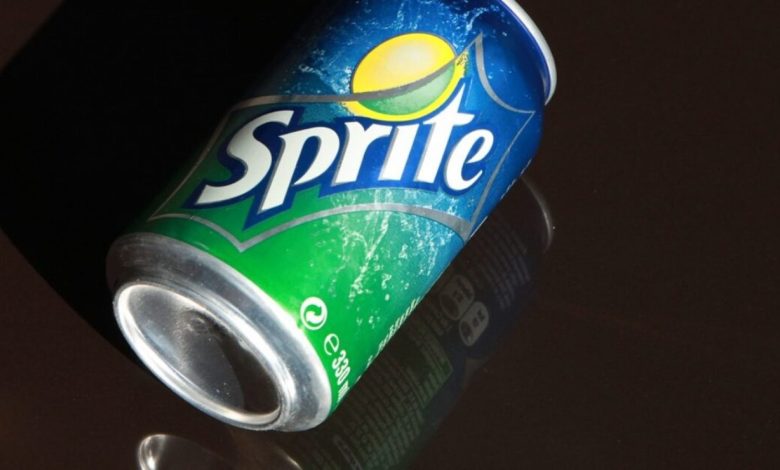ALERT: Multiple Sodas Recalled Due To “Potential Foreign Material”

Coca-Cola has recalled cans of Diet Coke, Sprite, and Fanta distributed in Alabama, Mississippi and Florida because of “potential foreign material.”
The U.S. Food and Drug Administration (FDA) disclosed the recall in a filing on November 6th, saying it included 1,557 cases of 12oz Sprite cans, 417 cases of 12oz Diet Coke cans, and 14 cases of 12oz Fanta Orange cans.
ALERT: Diet Coke, Sprite and Fanta Recalled Due to ‘Potential Foreign Material’ https://t.co/0reFESOxlb
— Breaking911 (@Breaking911) December 14, 2023
Delish noted:
To check whether you have recalled soda, you’ll want to look at the best by date, lot number, and UPC code for your products.
Recalled Diet Coke has a best by date of 01/29/24, lot no. JAN2924MBD3, and UPC code 49000028911.
Recalled Fanta Orange has the best by date of 07/29/24, lot no. JUL2924MBD3, and UPC code 49000030730.
And the recalled Sprite has the best by date of 07/29/24, lot no. JUL2924MBD3, and UPC code 49000028928.
The recall is ongoing, and you can find all of the information here. But unfortunately, this isn’t the only recent recall. The recent recalls issued on applesauce pouches and cantaloupe were other alerts you might want to keep on your radar.
🚨Alert: The FDA has announced a recall of 12 packs of Diet Coke, Fanta Orange, and Sprite that were sold in Alabama, Florida, and Mississippi due to concerns about potential “foreign material” in the cans of soda. pic.twitter.com/nfYSIHwFdp
— The Calvin Coolidge Project (@TheCalvinCooli1) December 14, 2023
NBC News added:
The FDA filing shows the recall started Nov. 6, and it was made by United Packers, based in Alabama.
In an email to NBC News, Coca-Cola Co. said the recall is complete and there are no more affected cans on the market.
RELATED:
Nationwide Recall Of Dry Shampoo — Cancer Causing Ingredient Found!
Question for you….
Are any of you all tired of being poisoned by Big Business?
How is it that they keep accidentally incorporating a bunch of cancer-causing ingredients into everything they sell?
And then they act like they don’t know how this keeps happening!
They do it to what you eat…
They do it to what you put on your skin…
And they even do it to what you spray on your hair and breath in!
Yup, that’s the latest.
Poisoning you by all 5 of your physical senses it seems.
I’m sick of it — and I have a solution for you down below in this article, so keep reading if you are sick of it too and you’d like to break the cycle.
But first, here’s the news:
BREAKING: Nationwide recall of 20 dry shampoo products!
Do this instead 👉 https://t.co/nTPKIuvyUJ pic.twitter.com/QMuqbzYzEp
— DailyNoah.com (@DailyNoahNews) July 2, 2023
Oh 20 brands you say!
Wow, so that’s a lot.
Just 20 “oopsies” huh?
How did that cancer-causing stuff get in here…we just can’t figure it out!
So which brands are offenders?
Pantene.
Aussie.
Proctor & Gamble.
Dove.
Suave.
Nexxus.
And more:
I use to love its GRAPE SMELL! 💯👂⚠️https://t.co/fIR8Y6D0FX
— REAL T (@REALT39311964) July 1, 2023
PSA DRY SHAMPOO RECALL
for anyone using these brands! pic.twitter.com/xLkR14qZs0— HAMTASTIC™✨ (@itsamandaham) October 27, 2022
Dry shampoo recall happening! Please spread the word. Sources in the comments. Thank you @GlamLifeGuru for sharing this info! pic.twitter.com/1mMTo7cMyx
— Dez Brasil (@dezbra19) November 21, 2022
From Glamour, you gotta love the part I bolded below — we just can’t figure out how that carcinogen got in there!
Last week the U.S. Food and Drug Administration (FDA) announced a nationwide dry shampoo recall due to “elevated levels of benzene” in dozens of aerosol products. Recalled items included Dove, Nexxus, Suave, Rockaholic, Bed Head, and Tresemmé dry shampoo canisters produced before October 2021.
This isn’t the first time benzene contamination prompted a cosmetics recall in recent history. In December 2021, Procter & Gamble recalled aerosol dry shampoo and conditioner spray products from Pantene, Aussie, and Herbal Essences due to detected benzene.
Is benzene dangerous?
Benzene is a chemical carcinogen. However, context is key: People breathe in low levels of the compound every day. “Products like cigarettes, gasoline, glues, paints, and certain plastics contain benzene,” Reid Maclellan, MD, director of Proactive Dermatology Group and founder and CEO of artificial intelligence health care company Cortina, tells Glamour. And it’s true: From car emissions to gasoline while filling your lawnmower, there are countless opportunities to expose oneself to benzene on a day-to-day basis. Even Banana smoothies have been found to be contaminated with it, adds Hans Plugge, a principal who specializes in toxicology at Safer Chemical Analytics LLC.
Relatively consistent exposure does not mean benzene is risk-free, however. According to Dr. Maclellan, short-term symptoms to high benzene exposure can include dizziness, confusion, drowsiness, vomiting, stomach irritation, or headache, and long-term effects could lead to cancer, anemia, and low blood cell counts as benzene kills white blood cells. He also says that if you have experienced any symptoms stated above, to seek medical attention. However, Plugge clarifies that it’s benzene only in high concentrations that is known to be carcinogenic and cause anemia.
“The level of exposure determines the risk,” he says. “The levels in the product described in these studies are very low and exposure is even lower.”
Is the amount of benzene in the dry shampoo canisters cause for concern?
How and why did benzene end up in the dry shampoo?
The source of the contamination remains unclear. “The spray cans’ propellant has been identified as the source of benzene in the dry shampoo, and they are working with the manufacturer to get to the bottom of this,” Dr. Maclellan says, though he clarifies that companies are not putting benzene into their products on purpose, since the harmful effects of these chemicals are universally recognized.


